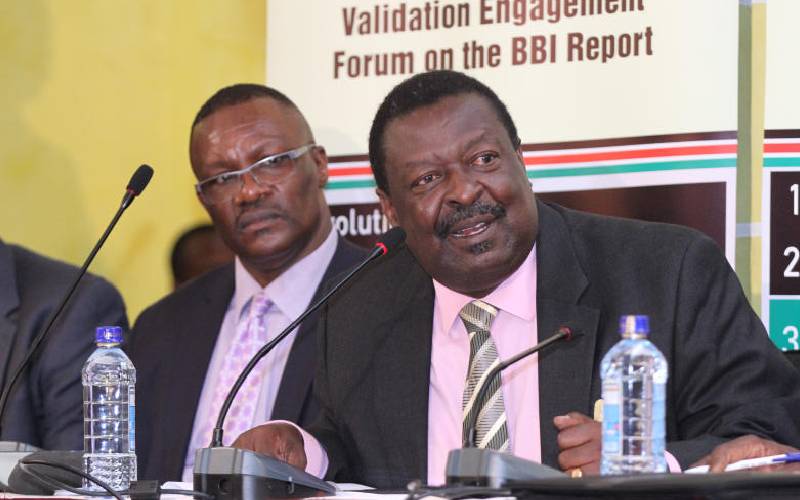×
The Standard e-Paper
Kenya’s Boldest Voice

Amani National Congress party leader Musalia Mudavadi (right) with Eliud Owalo, a member of the party, when they appeared before the Building Bridges Initiative task-force at the KICC, Nairobi yesterday. [Elvis Ogina, Standard]
Amani National Congress (ANC) leader Musalia Mudavadi has opposed the bid to create the post of a powerful prime minister in the possible changes to the Constitution.